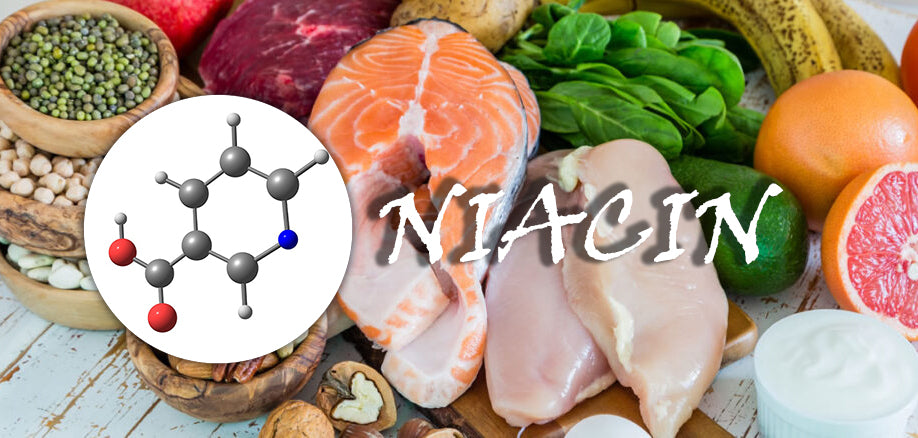
Niacin Health Benefits and Its Clinical Trial on Erectile Function in Men Suffering Erectile Dysfunction and Dyslipidemia
What is Niacin?
Niacin (also known as vitamin B3) is one of the water-soluble B vitamins. Niacin is the generic name for nicotinic acid (pyridine-3-carboxylic acid), nicotinamide (niacinamide or pyridine-3-carboxamide), and related derivatives, such as nicotinamide riboside [1-3]. Niacin is naturally present in many foods, added to some food products, and available as a dietary supplement." ( Source: National Library of Medicine)
Health Benefits of Niacin in General
According to School of Public Health of Harvard University, Niacin is very important for Cadiovascular Health and Cognitive Health
"For more than 40 years, niacin in the form of nicotinic acid has been given to patients to treat a condition called dyslipidemia, a major risk factor for cardiovascular diseases (CVD) such as coronary artery disease, heart attack, and strokes. Bloodwork in someone with dyslipidemia may show high total and LDL “bad” cholesterol levels, low HDL “good” cholesterol, and elevated triglycerides."
"A severe niacin deficiency has been associated with cognitive decline such as memory loss and dementia. Niacin is believed to protect brain cells from stress and injury. It is not yet clear though if smaller variations in dietary niacin intake can negatively affect brain function."
Why Niacin is Important for Men's Health?
Niacin has been studied in clinical trials for its effects on cholesterol levels and its potential role in improving erectile function in men with erectile dysfunction and dyslipidemia
An articl published on National Library of Medicine with clinical trial of
Effect of niacin on erectile function in men suffering erectile dysfunction and dyslipidemia
concluded
"Niacin alone can improve the erectile function in patients suffering from moderate to severe ED and dyslipidemia."





